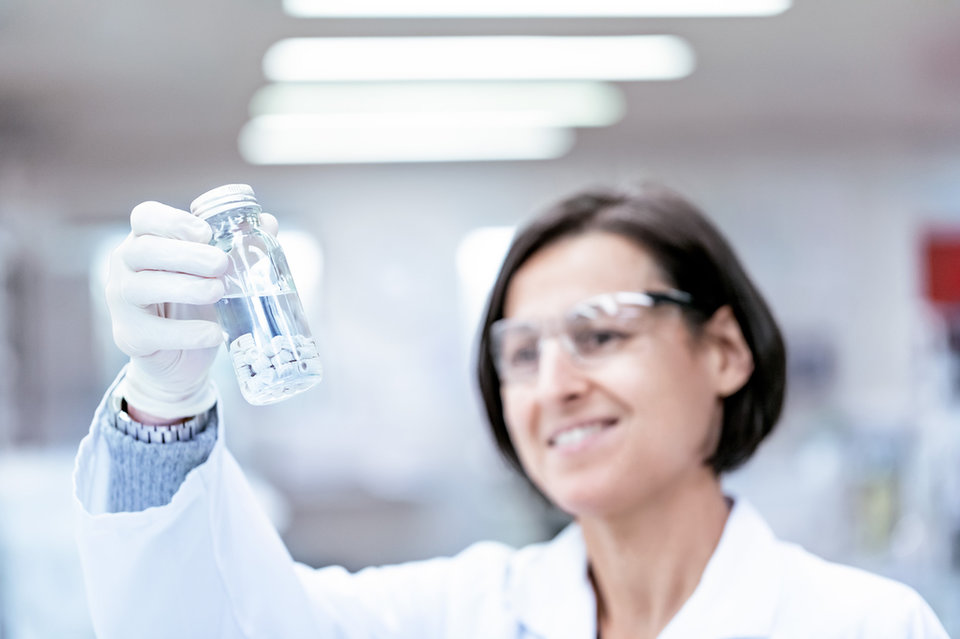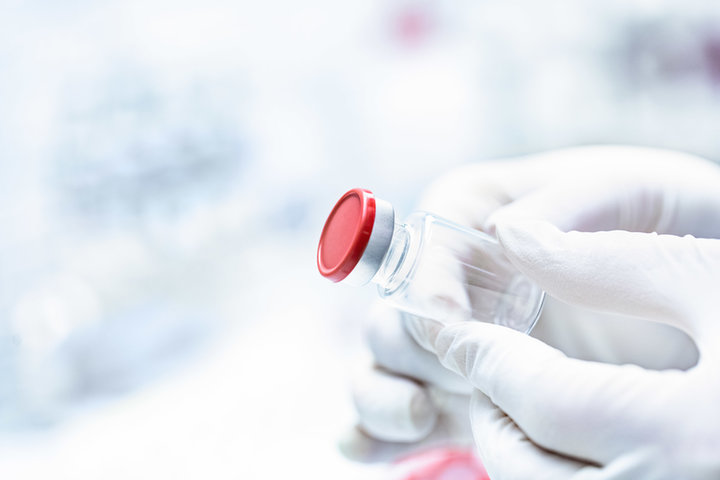COMPANY INSIGHT
Sponsored by Datwyler
Preserving the Parenterals of Tomorrow
This piece discusses the future of Parenrerals and the role sealing solutions can have in vital processes. Additionally, it will touch on how the right components, and their manufacturing setup, can meet the needs of an evolving market.
By Glenn Thorpe, Senior Vice President, Datwyler Healtchare

Amid the evolution of the pharmaceutical industry, and more recently catalyzed by the coronavirus (COVID-19) and its implications on drug demand, delivery and the supply chain, parenteral drugs are experiencing increased demand. However administered, the format creates new and critical avenues for drug delivery thanks to favorable attributes around safety and efficacy. Parenterals allow for a controlled release—either gradual or instantaneous—that an oral medication cannot always provide. This format is critical to providing immediate pain relief. Parenterals also encourage patient adherence—often by requiring a clinician for administration—minimizing the opportunity for error and the subsequent costly, dangerous consequences.
Still, parenterals cannot perform correctly if the formulas are compromised while in production or en route to patients. This makes packaging a critical piece of the puzzle in sealing off the drug formula from any outside elements—and ensuring that no leachables from the packaging itself could compromise the integrity of the formulation.
As a result, packaging plays a vital role in potentially lifesaving drugs and must represent a core consideration in the design and manufacturing process of these products.

Anticipating the next generation of parenterals
Considering the potential hazards facing parenterals throughout production and distribution, it may be surprising to learn that the market today still widely uses ampules—small glass vials—to store and transfer medications. These containers are susceptible to breakage. If glass particles fall into the drug as a result, the formula may be subject to cause contamination or harm.
As a whole, the prioritization of risk reduction at point-of-use is driving the need for packaging components that enable more fool-proof drug delivery—especially when it comes to self-administered medications.
Personalized medicine is expected to become much more popular and present in the market, as drugs can be designed for more simplified administration and still maintain the necessary level of safety and control. This growth will likely boost the need for prefilled syringes and cartridges—devices that offer one-step use that are easier for both health professionals and patients to navigate.
Addressing the changing demands of parenteral packaging
While the adoption of personalized medicines may simplify product use for the patient, these higher-value components also make the manufacturing process more complex. Designing drug delivery to be virtually fail-safe for patients requires an intricacy of safety measures throughout the product packaging.
Packaging technologies should meet stringent requirements for safety and security throughout the manufacturing process and applying the appropriate sealing solutions to keep parenteral drugs sterile can make the difference in a viable batch.
It will be important for these components to modernize in response to the changing needs of drugs. As demand increases for large-molecule parenteral drugs, which exhibit significant sensitivity to leachables and other particle contamination, manufacturers can benefit from new innovations in spray coating technologies that enhance the protective barriers of plungers and stoppers.
COVID-19 has demonstrated the merits of decentralized supply chains and suppliers that bolster continuous manufacturing capabilities for drug manufacturers, shining a light on service and process—not just materials and component design. New supplier manufacturing capabilities will shape the industry’s ability to respond to public health crises and pandemics, and packaging partners that take an integrated approach to design can provide reassurance that foresight and precautionary measures were applied to each level of production.
Achieving a secure parenteral package
Pharmaceutical companies should work closely with component manufacturers that can accommodate a range of batch sizes and will approach packaging for every product with the same care and scrutiny. Focusing on component sterilization further upstream in the production process can reduce the manufacturing footprint in a parenteral packaging facility, which can be designed to eliminate the presence of identified contaminants and to meet the highest manufacturing standards.
In addition, pharmaceutical companies will find value in manufacturing processes that can customize packaging to address individual product needs. In this sense, employing a tailored approach to device design serves as a major avenue for meeting safety and performance standards.

Ensuring scalability
Agility along the production line is important to prevent contamination and facilitate unique product needs, but it is helpful for meeting changing market demands. Amid supply shortages for COVID-19 test kits, and speculation on potential shortages of packaging components for vaccines or treatments, drug manufacturers should scrutinize the processes behind scaling up from development to production. They must ask whether a sudden surge in demand would create capacity. If so, the company should take some key steps to avoid potential misteps when scaling up to meet demand.
As the market continues to evolve, it will be prudent for pharmaceutical companies to consider the types of parenteral products that will gain traction, their individual needs and where component manufacturing will require adjustment to keep up. Flexibility and customization will serve as important points of differentiation in this process, enabling emerging medicines to reach the patient and perform as intended
DATWYLER | HEALTHCARE
Datwyler is focusing on high-quality, system-critical elastomer components and has leading positions in attractive global markets such as healthcare, mobility, oil & gas, general industry, and food & beverage. With its recognized core competencies and technological leadership, the company delivers added value to customers in the markets served. With more than 20 operating companies, sales in over 100 countries and more than 6,900 employees, Datwyler generates annual sales of more than CHF 1’000 million. Within the healthcare solutions business area, Datwyler develops, designs, and manufactures solutions for injectable packaging and drug delivery systems to facilitate customers to create a safer medical environment of tomorrow. Looking back onto more than 100 years of history, Datwyler is a reliable partner, now and in the future! www.datwyler.com
Contact information
Datwyler Pharma Packaging Belgium NV
Nijverheidsstraat 5
Industrieterrein Kolmen 1519
3570 Alken
Belgium
T +41 41 875 11 00
Email: info@datwyler.com
Website: www.datwyler.com